Slow startup times on your Windows PC can be frustrating, causing delays in work and daily activities. Fortunately, there are several steps you can take to speed up your computer’s startup time.
I will guide you through practical solutions to optimize your Windows PC for smooth performance and explain common reasons for slow startup times.
10 Tips to Speed Up Slow Startup on Windows
Disable Fast Startup
Fast Startup is a feature in Windows designed to reduce boot time. However, it can sometimes cause issues and slow down the startup process.
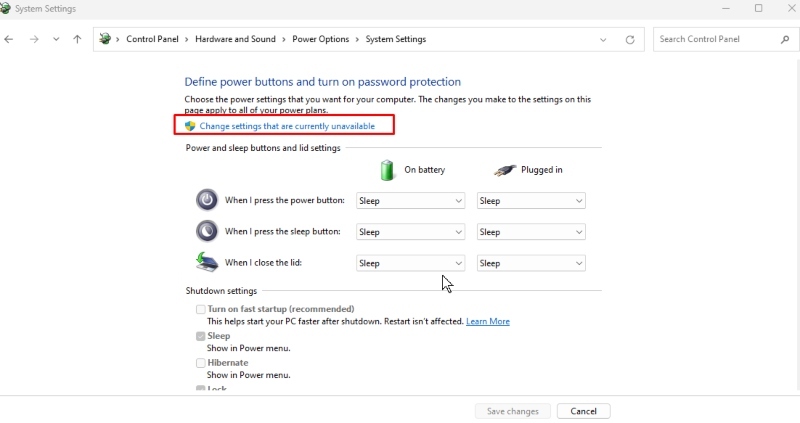
- Open the Control Panel and navigate to Power Options.
- Click on “Choose what the power buttons do.”
- Select “Change settings that are currently unavailable.”
- Uncheck “Turn on fast startup (recommended).”
- Click “Save changes.”
Disable Unnecessary Startup Programs
Many programs are set to launch at startup, slowing your boot time. Disabling unnecessary programs can help speed up the process.
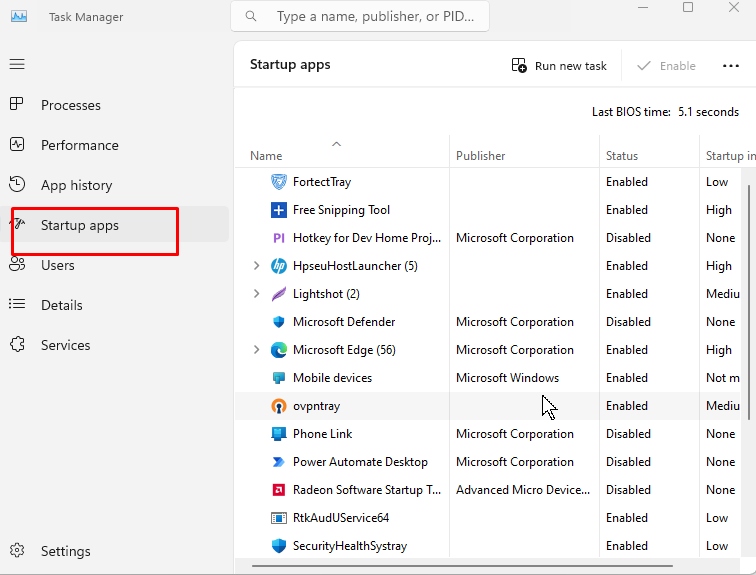
- Press Ctrl + Shift + Esc to open Task Manager.
- Go to the Startup tab.
- Review the list of programs and right-click to turn off any that you don’t need to start automatically.
Adjust Paging File Settings
The paging file is a hidden file on your hard drive that Windows uses as if it were RAM.
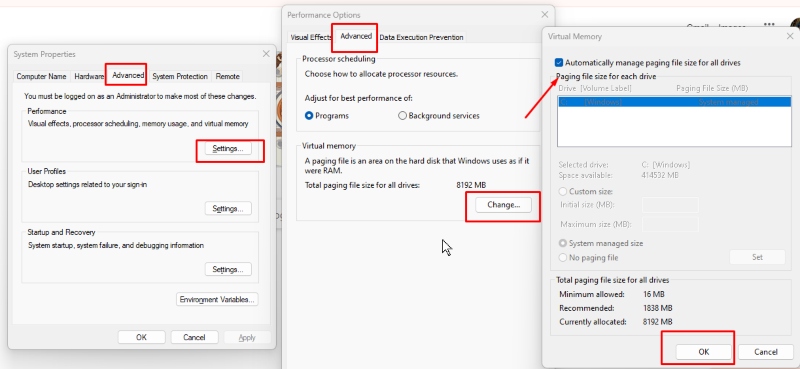
- For Windows 10/11, type system next to the start button
- Scroll down to About
- Click on “Advanced system settings.”
- Under the System Properties window, click on the Advanced tab
- Under the Performance section, click Setting.
- Under the Performance Options window, click on the Advanced tab
- Under the Virtual Memory section, click on the Change button
- In the Virtual Memory window, ensure the Automatically manage paging file size for all devices tick box is unchecked.
- Click Ok
Update Your Graphics Drivers
Outdated or corrupt graphics drivers can slow down your system’s startup time. Make sure that your drivers are updated.
To check if your graphics card is outdated, follow the steps below:
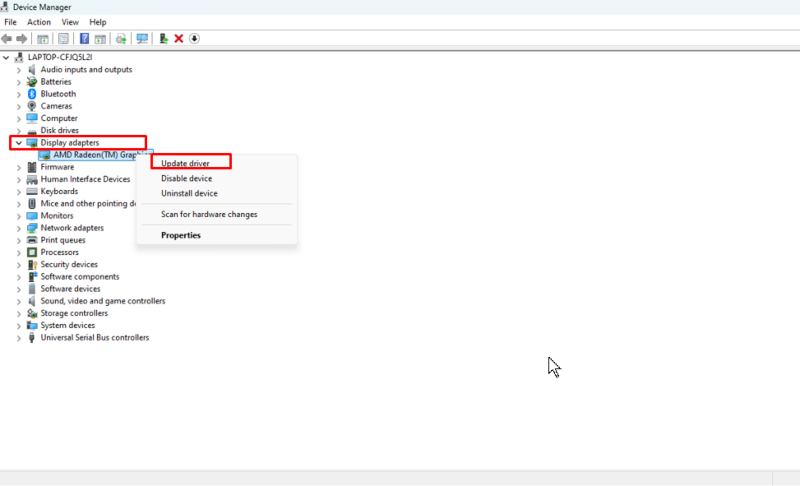
- Press Win + X and select Device Manager. Or type Device Manager right next to your start button
- Expand the Display Adapters section.
- Right-click your graphics card and choose Update driver.
- Follow the prompts to search for and install any available updates.
Run a Malware Scan
Malware can significantly impact your computer’s startup time by running numerous background processes that consume valuable system resources. These malicious programs can also interfere with essential system files, causing delays during boot.
Suppose your Windows computer is infected by malware. In that case, I recommend investing in Tweaking PC Solution to ensure your Windows Defender and Firewall run smoothly while repairing any malware infections that slow down your startup. Also, Tweaking frees up hard drive space by deleting unnecessary temp files that accumulate over time, another common cause of slow startup.
Download and Install Tweaking now.
Do a Clean Install of Windows 10
A clean install can resolve many issues that cause slow startup times.
- Back up your files and create a recovery drive.
- Download the Windows 10 Media Creation Tool from Microsoft’s website.
- Follow the instructions to create installation media and perform a clean install.
Run an SFC Scan
The System File Checker (SFC) scan can repair corrupted system files.
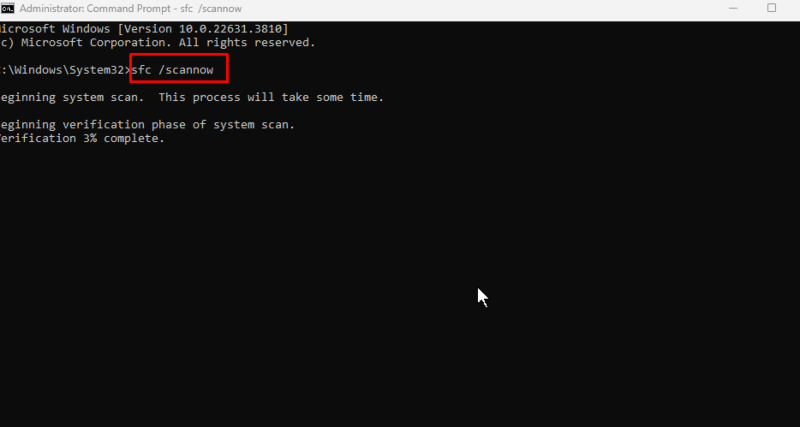
- Open Command Prompt as an administrator.
- Type sfc /scannow and press Enter.
- Wait for the process to complete and follow any prompts to fix detected issues.
Hard Drive and Memory Upgrade
Upgrading your hard drive to an SSD and increasing your RAM can drastically improve startup times.
- Purchase a compatible SSD and additional RAM.
- Follow manufacturer instructions or seek professional help to install the new hardware.
- Reinstall Windows if necessary and transfer your files.
If All Else Fails, Perform a Reset to Fix the Window Slow Starup
If your startup issues persist, resetting your PC can be a last resort.
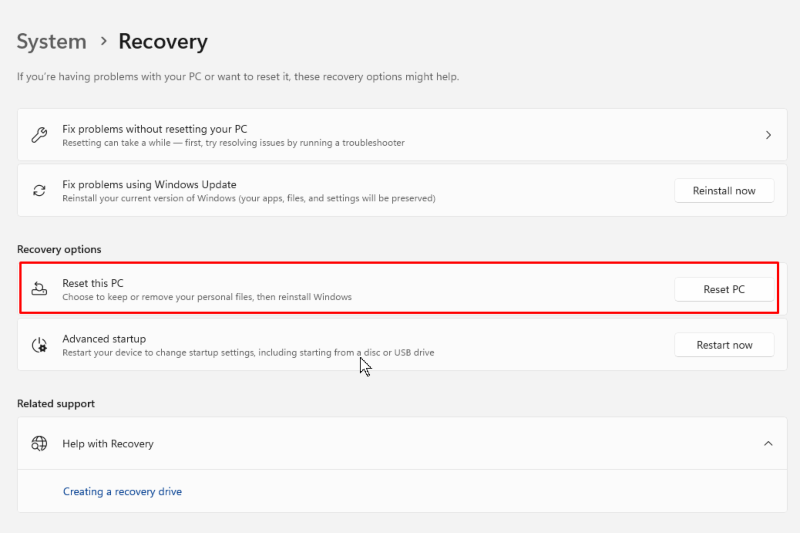
- Go to Settings > System > Recovery.
- Under Reset this PC, click Get Started.
- Choose to keep your files or remove everything, and follow the instructions on-screen.
Slow Startup on Windows Reasons
Experiencing slow startup times on your computer can be frustrating and hinder productivity. Understanding the underlying causes can help you address the issue effectively.
Here are some common reasons why your computer might be starting up slowly:
Too Many Startup Programs
When too many applications are set to launch at startup, they compete for system resources, slowing down the boot process.
Fragmented Hard Drive
Fragmentation can cause the system to take longer to load files necessary for startup on traditional hard drives. Over time, as files are created, deleted, and moved around, the hard drive can become fragmented, leading to slower access times.
Outdated or Corrupt Drivers
Drivers are essential for communication between the operating system and hardware. Outdated or corrupt drivers can significantly delay startup, especially for critical components like graphics or network cards.
Malware or Viruses
Malware or viruses can run background processes that consume valuable system resources, leading to slower startup times. They can also cause other issues, impairing your system’s overall performance.
Insufficient RAM
If your computer doesn’t have enough RAM, it has to rely on the hard drive for virtual memory, which is much slower. This can cause delays not just in startup but in general system performance.
Large or Corrupted Registry Files: The Windows registry stores system settings and options. Over time, as programs are installed and uninstalled, the registry can become bloated or corrupted, causing delays during startup.
Too Many Background Processes
Background processes, including system processes and user-installed applications, can run at startup and significantly slow down the boot process.
Unnecessary Visual Effects and Animations
Windows includes various visual effects and animations that can consume system resources. Turning these off can improve startup times.
Outdated Operating System
Running an obsolete operating system can lead to slower startup times. Regular updates often include performance improvements and bug fixes.
Hardware Issues
Failing hardware, such as a dying hard drive, faulty RAM, or other hardware problems, can lead to slow startup times. Regular maintenance and hardware checks can help prevent these issues.
Total Hard Drive
A nearly complete hard drive can slow down the system because there isn’t enough space for temporary files and virtual memory. This can significantly impact startup times as the system struggles to find space for necessary files.
Network Issues
If your computer tries to connect to network drives or resources at startup, issues with the network connection can cause delays.
Menzi Sumile
Verified at:
29/05/2024 06:37
Leave a Reply